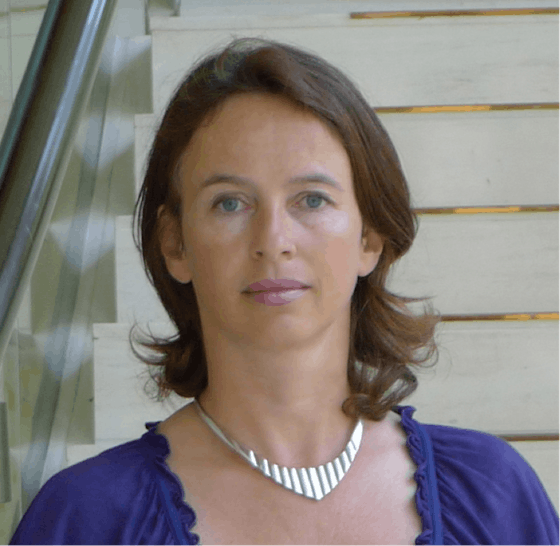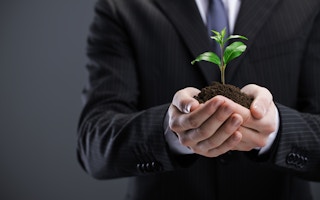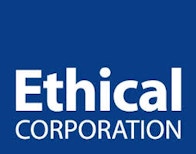Please tell us, in a sentence, what it is you do.
In my role as global head of corporate and sustainability communications, I am tasked with building and protecting reputational capital for Olam International by aligning our messaging with our corporate purpose, ‘Growing Responsibly’.
Do you have timeline and metrics in place to measure the success?
We have set out clear metrics divided into seven prioritised material areas identified in consultation with our stakeholders - livelihoods, water, land, food security, labour, climate change and food safety.
This gives us a strong platform to drive progress internally, especially as these are time-bound public aspirations mapped from 2015 to 2020 in our Corporate Responsibility and Sustainability (CR&S) Report. Setting out the metrics is the easy part though. In a complex supply chain business operating from farming to packaged foods in over 44 products and across 65 countries, the job of collecting unified data makes for a mammoth task.
Internal engagement must be a key issue at Olam. What strategies do you have in place to ensure sustainability is well understood among all employees?

Briony Mathieson, global head of corporate & sustainability communications, Olam International
Sustainability at Olam is understood by our colleagues through the lens of our corporate purpose, ‘Growing Responsibly’. This not only incorporates what you would typically understand as corporate responsibility - environmental stewardship, economic prosperity and social well-being – but also the values of responsible business practices such as good governance and transparency. While our sustainability strategy has been led from the top down, we now have over 1,060 dedicated global sustainability staff based on the ground.
At the summit, you are speaking on internal reporting on CSR and how to communicate sustainability progress effectively. Can you tell us more how is it done at Olam?
This year’s CR&S Report, Connectivity in the Landscape, focuses on the need to take a holistic or ‘landscape’ approach to sustainability and the interconnectedness of our seven material areas. The report gives us the chance to share our goals, aspirations and progress with the internal team which we see as one of the primary audiences.
We have a number of other channels for sharing updates with colleagues including: ‘Mindshare’ sessions (webcast presentations and Q&As); our intranet and weekly blast highlighting engaging case studies, relevant external news coverage and awards, short films etc; workshops where we explain the big picture of the Olam Sustainability Standard and the policies and codes associated with it; and our Twitter feed which is a great hub for not only our own content, but also aggregates relevant stories about agricultural supply chains, smallholder farmers, food security etc.
“
By sourcing products directly from the farm gate and our own farms, we are in a strong position and we are constantly collaborating and adopting new technologies to help us track provenance.
What are the big issues to watch in 2015?
Traceability is becoming increasingly important as our customers face growing scrutiny of their supply chains. By sourcing products directly from the farm gate and our own farms, we are in a strong position and we are constantly collaborating and adopting new technologies to help us track provenance.
Climate change will grab a large share of voice the closer we get to the United Nations Climate Change Conference, COP21, in Paris in December.
Soil health for our producers and farming communities is a pressing issue, being the basis of food production, supporting our planet’s biodiversity, storing and filtering water, and helping us combat and adapt to climate change. It’s a much needed focus and appropriately 2015 was nominated as the International Year of Soils.
In your role, what are your priorities for 2015?
2015 is a milestone for Olam as we celebrate our 25th anniversary. It gives us the chance to reflect on our journey from a single-product, single-country company to the global agribusiness we are today, and the meaning of our name - ‘transcending boundaries’, enduring or everlasting. What better time to think about our vision for the next 25 years and beyond?
As part of our anniversary celebrations, we have launched four initiatives that will help address some of the global challenges facing the next generation: the Olam Prize for Innovation in Food Security; the Olam Scholarship Programme; the Olam Foundation; and the Building Sustainable Futures Forum. Much of my time will be spent ensuring their success.
On a more practical level, I will also be wrestling with the evolving reporting context for Integrated Reporting, the new GRI G4 standard (the fourth generation of Global Reporting Initiative’s Sustainability Reporting Guidelines) and how it all fits together and how we should plan our route map.
And finally, why are you looking forward this year’s Responsible Business Summit Asia?
It is impossible to tackle any of the global issues that face us in isolation. Forums like the Responsible Business Summit Asia are great for bringing decision-makers together from different sectors and industries to share common problems, with the goal of helping to find innovative solutions in a pre-competitive environment.
Headquartered in Singapore, Olam thinks it is fantastic to have an initiative like this come to our shores.
Briony Mathieson will be speaking about resource scarcity, traceability and sustainable supply chains at the Responsible Business Summit Asia on May 6-7, Singapore. Other speakers include Adidas Group, Interface, Cargill and more. To get a full run-down of the event, click here.


















